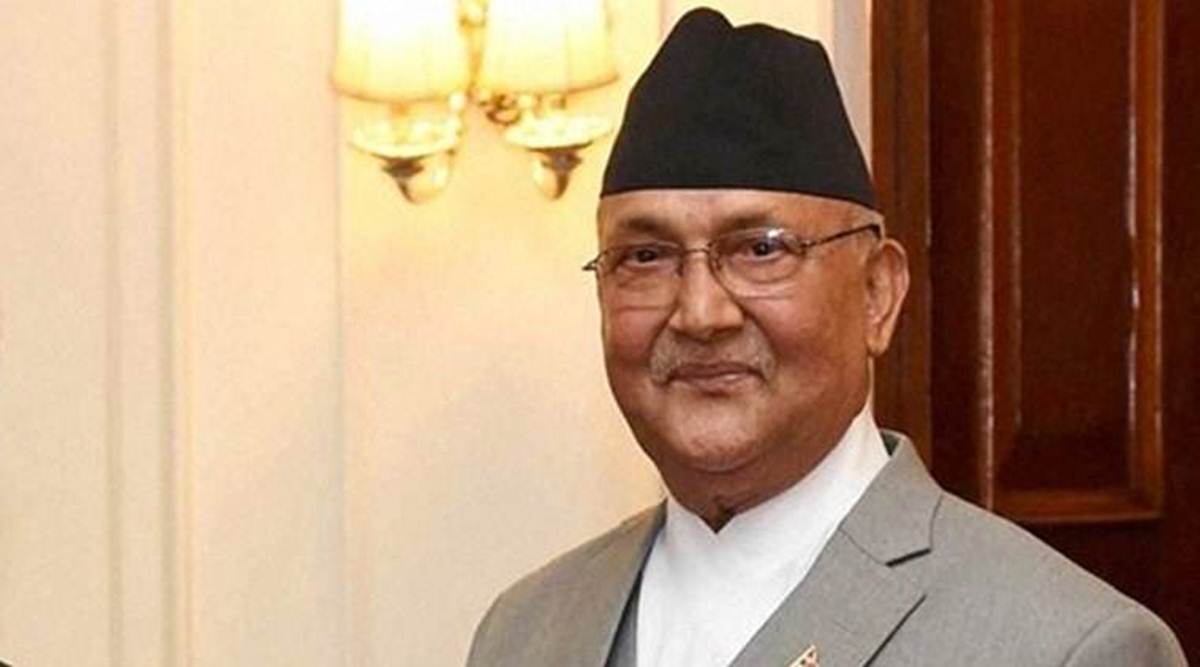 The Nepal Foreign Ministry said Oli appreciated Modi’s “renewed priority to neighbourhood as spelt out in today’s Independence Day address”.
The Nepal Foreign Ministry said Oli appreciated Modi’s “renewed priority to neighbourhood as spelt out in today’s Independence Day address”.For the first time since May when the boundary dispute peaked to cast a shadow on ties between Delhi and Kathmandu, Prime Minister Narendra Modi received a phone call Saturday from Nepal counterpart K P Sharma Oli.
The phone call, according to a statement from the Ministry of External Affairs, lasted 11 minutes during which Oli greeted the Indian government and the people of India on their 74th Independence Day.
The Nepal Foreign Ministry said Oli appreciated Modi’s “renewed priority to neighbourhood as spelt out in today’s Independence Day address”.
“The Prime Minister of Nepal looked forward to meaningful bilateral cooperation,” Nepal’s Foreign Ministry said, adding that the “two Prime Ministers agreed to continue discussions on bilateral matters in the future”.
This signals an outreach and willingness to take forward the conversation at the highest level to a more pragmatic conversation at the diplomatic level.
While there was no reference to the border dispute in the statements, the phone call assumes significance in the wake of the sharp deterioration of ties between the two countries in the last three months.
On August 17, India and Nepal will review projects in Nepal funded by the Indian government. The meeting will take place in Kathmandu where Nepal’s Foreign Secretary Shankar Das Bairagi will lead a team of officials while the Indian side will be led by Ambassador Vinay Mohan Kwatra.
The MEA said Modi thanked Oli “for his telephone call” and “recalled the civilizational and cultural links that India and Nepal share” – indicating moves to bury the hatchet.
Both governments readouts mentioned that Oli congratulated India for being elected a non-permanent member of the UN Security Council. Nepal’s statement, however, added that Oli “expressed best wishes for the successful discharge of this important responsibility”. The UNSC elections took place at the height of tensions between the two countries in June this year – Nepal was said to have supported India’s bid.
On the Covid-19 situation, the MEA said the leaders expressed “mutual solidarity” in the context of efforts being made to minimise the impact of the pandemic in both countries. “Prime Minister offered India’s continued support to Nepal in this regard,” the MEA said.
Nepal’s Foreign Ministry said: “The Prime Minister of Nepal highlighted the efforts of the Government of Nepal against the pandemic and to protect the life of the people. While underlining the need for early development of anti-Covid vaccine, the Prime Minister of Nepal expressed hope that scientists around the world, including in India, would be able to develop it that will contribute to control and prevent the disease from spreading further.”
During the call, Oli recalled his earlier conversation with Prime Minister Modi on April 10, and expressed “best wishes for the continued progress and prosperity of the people of India”, the Nepal’s Foreign Ministry said.
The border dispute between India and Nepal had come to the fore last November when India published its new map following the bifurcation of Jammu and Kashmir into two Union Territories and the end of its special status under Article 370.
Kathmandu had proposed talks to discuss the boundary issue. It was tentatively scheduled for March, but had to be put off due to the Covid-19 outbreak. Nepal suggested a videoconference, and then claimed that New Delhi was dragging its feet on the proposal.
India’s inauguration this May of a new road from Dharchula to Lipulekh on the Mansarovar Yatra route angered the Oli government which came out with a new map of Nepal, adding to it an area of 370 sq km at the tri-junction of Nepal, India and China (Tibet) which India maintains is its territory.
A Constitution amendment Bill was passed by Nepal’s parliament to legitimize the alteration or addition of Kalapani, Lipulekh and Limpiyadhura to the country’s new map. The passage of the Bill and the new map led to the breakdown of communication between the two countries.